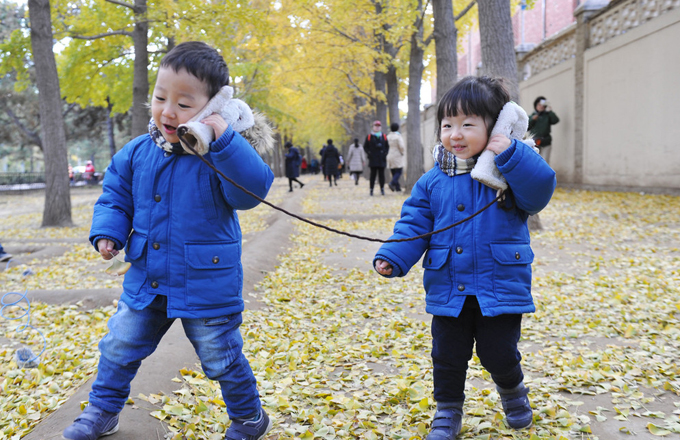Growing elephant numbers risk conflicts
Niu Minghui is concerned about a group of wild Asian elephants that pay surprise visits to steal crops from his backyard.
One night in June, Niu heard loud noises outside. Inching the curtains open, he saw a massive wild elephant casually munching on corn that it had stolen from next door.
"I did not dare turn on the lights, and I put my cellphone on silent," said Niu, 29, of Shiban village in Southwest China's Yunnan province.
Niu quietly called the village elephant expert who tried to use firecrackers to scare the animal away, but it didn't work. Instead, the elephant took about 40 minutes to eat its stolen corn.
"Maybe he was just too hungry," Niu said. "It is OK if the elephants steal a little food, as long as they do not attack."
Conflicts between elephants and humans are on the rise in Yunnan.
According to the provincial forestry bureau, between 2011 and last year, more than 48,000 cases involving wild elephants resulted in 18 deaths, 27 injuries and economic losses totaling about 99 million yuan ($14 million). Government compensation for the families of the victims totaled more than 98 million yuan.
Wild Asian elephants are a Class-A protected animal in China, with their population mainly scattered across Yunnan's Xishuangbanna Dai autonomous prefecture and in the cities of Pu'er and Lincang.
China's efforts to protect the ecosystem have helped wild elephant numbers grow from less than 180 in the 1990s to about 300 today, but the animals are still facing extinction, said Yang Yun, head of Xishuangbanna National Nature Reserve Administration.
"In the past decade, we have tried to raise awareness to protect wild Asian elephants," Yang said. "We also worked with several provinces in Laos as part of a cross-border protection program."
Chen Mingyong, a life sciences professor at Yunnan University, said despite the growing numbers, wild elephants are still at risk of extinction in China, particularly as villagers often "take revenge on elephants for causing trouble".
Chen Yong, a wildlife protection official in Xishuangbanna, said as elephant numbers grow, conflicts between the animals and humans are inevitable.
In 2015, a pregnant wild elephant was shot dead by villagers in Yunnan after it attacked residents. Two wild elephants died the same year after eating crops sprayed with pesticides.
Li Zhao, head of the forestry bureau in Pu'er, said the city has increased investment, closed hillsides, held training sessions on elephant attacks and bought insurance to help reduce conflicts.
"The city pays out more than 16 million yuan a year for the protection of wild elephants and compensation for damage caused by the animals," Li said.
Li added that the city is considering building a national park for wild elephants.




















